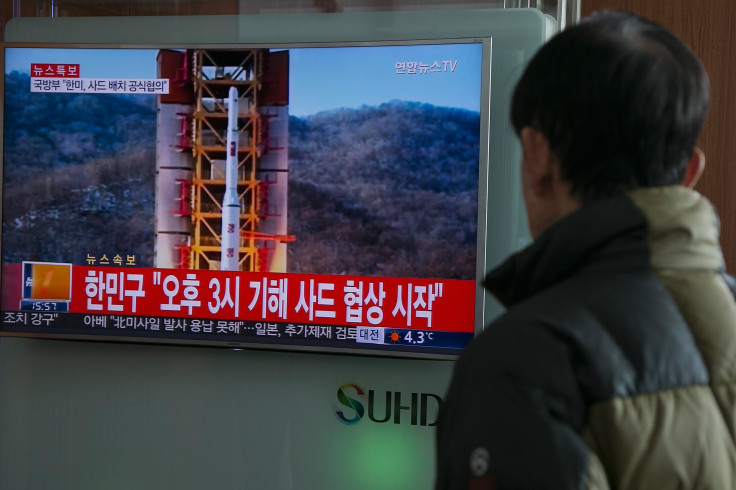North Korea Says Satellite Launch 'Legitimate' Space Development, Others Fear Missile Test

North Korea is preparing to launch a satellite, a Seoul newspaper said Tuesday as speculations arose that the county it may continue to stage missile provocations under the disguise of satellite launches.
The newspaper Joongang Ilbo Daily, citing an unnamed South Korean government official, reported that North Korea could be preparing to launch a satellite into space. The country, according to the publication, manufactured a new artificial satellite called "Kwangmyongsong-5". However, any technical specifications of the satellite were not revealed in the report cited by several other publications.
“North Korea has recently manufactured a satellite and named it Kwangmyongsong-5,” the JoongAng Ilbo quoted the official as saying.” He further added: “Their plan is to put a satellite equipped with cameras and telecommunication devices into orbit.”
Reuters reported that experts had previously stated such launches could be aimed at further developing the North’s ballistic missile technology and would be prohibited under U.N. resolutions.
Meanwhile, a report by the North Korean newspaper Rodong Sinmun, cited by South Korea’s Yonhap News said the North defended its push for space development as a "legitimate" exercise of its rights. The statement sparked speculation by outside observers that Kim Jong Un’s regime’s space development program could be intended for concealing weapon tests.
According to reports, a spokesman for the South Korean military joint chiefs of staff said there was “nothing out of ordinary at this moment” but added that Seoul was watching out for any provocative acts “including the test of a long-range missile disguised as a satellite launch”.
The report published in Rodong Sinmun, however, said: "Our satellite launch is a legitimate exercise of the right that thoroughly fits the U.N. Charter that enshrines the basic rights of respect for sovereignty and equality, and the international law that governs the peaceful use of space.”
"Our country is also in step with the trends of space development that is taking place broadly across the world," it further said.
Yonhap quoted a senior researcher at South Korea’s Institute for National Security Strategy who also expressed his fears that the satellite development could be used as a fig leaf.
"Though the North argues for its right for space development, it could be part of efforts to build its rationale for launching long-range rockets," Cho Sung-Ryu said.
The North previously claimed to have launched their Kwangmyongsong-4 satellite in February 2016, which, according to reports.
According to the data of Japanese and South Korean military, cited by Sputnik News, the rocket was an improved modification of the carrier "Unha-3" ("Milky Way"), a civilian version of the intercontinental ballistic missile "Taepodong-2".
North Korea's deputy U.N. ambassador Kim In-Ryong said at a UN General Assembly committee meeting in October that his country had a plan to develop "practical satellites that can contribute to the economic development and improvement of the people's living" between 2016-2020. He also added that North Korea's right to produce and launch satellites "will not be changed just because the US denies it".
The stand of the North on its space development program comes after the statement by North Korea’s Korean Central News Agency that said the country giving up its nuclear weapons was a “pipe dream.”
“If the U.S. wishes to live safely, it must abandon its hostile policy towards the DPRK and learn to co-exist with the country that has nuclear weapons and should wake up from its pipe dream of our country giving up nuclear weapons which we have developed and completed through all kinds of hardships,” North Korea’s foreign ministry said in a statement Sunday, according to KCNA.
It also opposed sanctions imposed Friday by the United Nations Security Council in response to yet another ballistic missile test launch by Kim Jong Un’s regime.
© Copyright IBTimes 2025. All rights reserved.





















